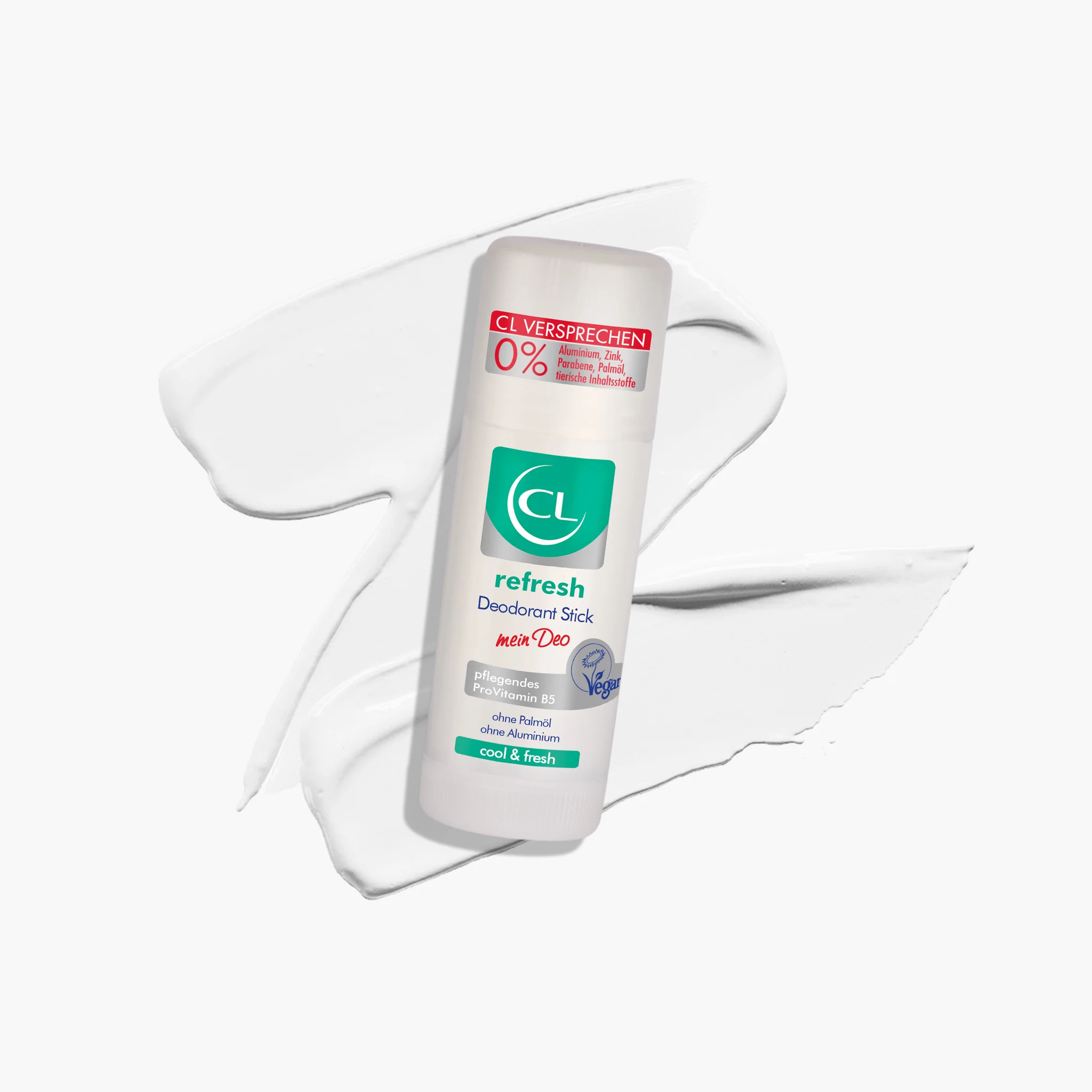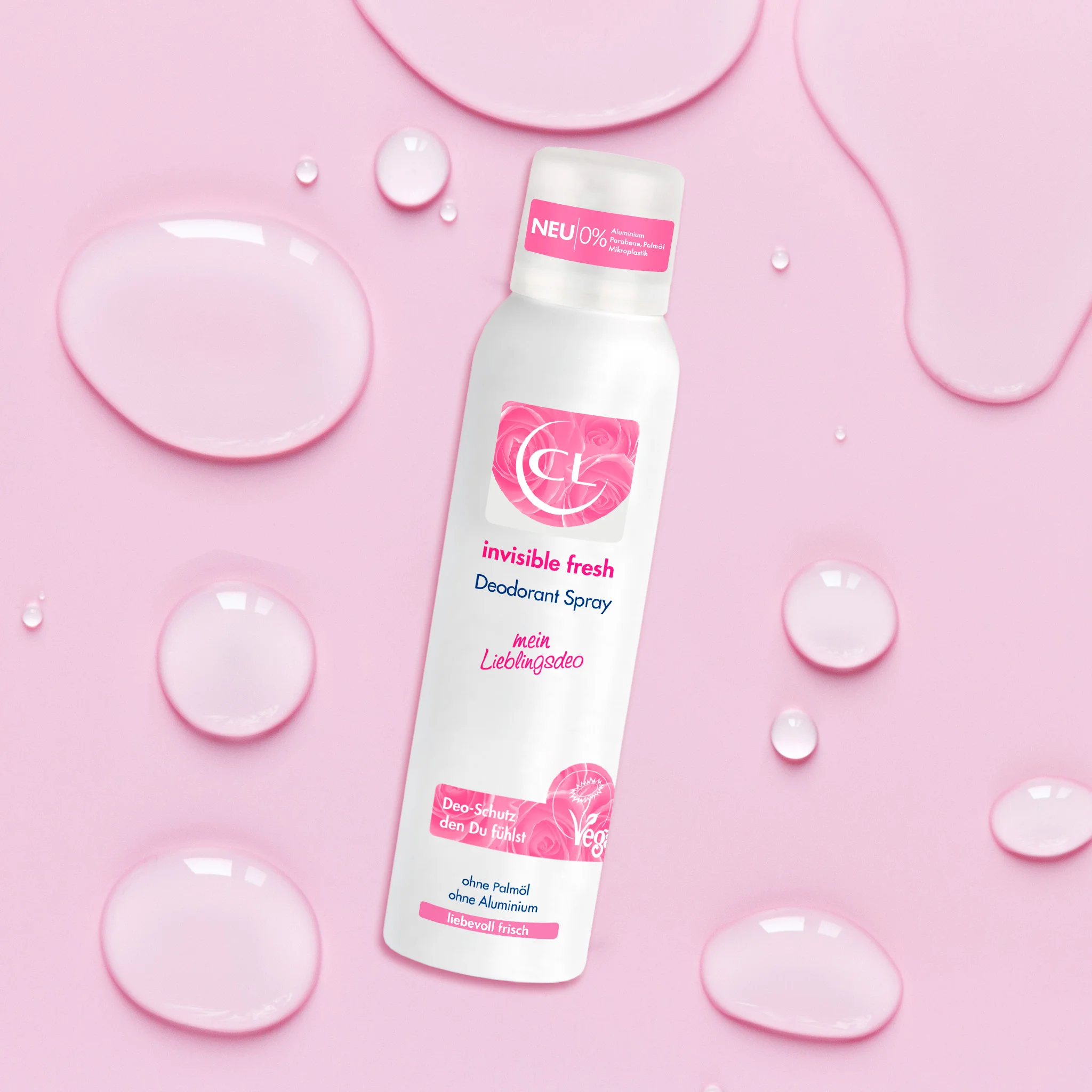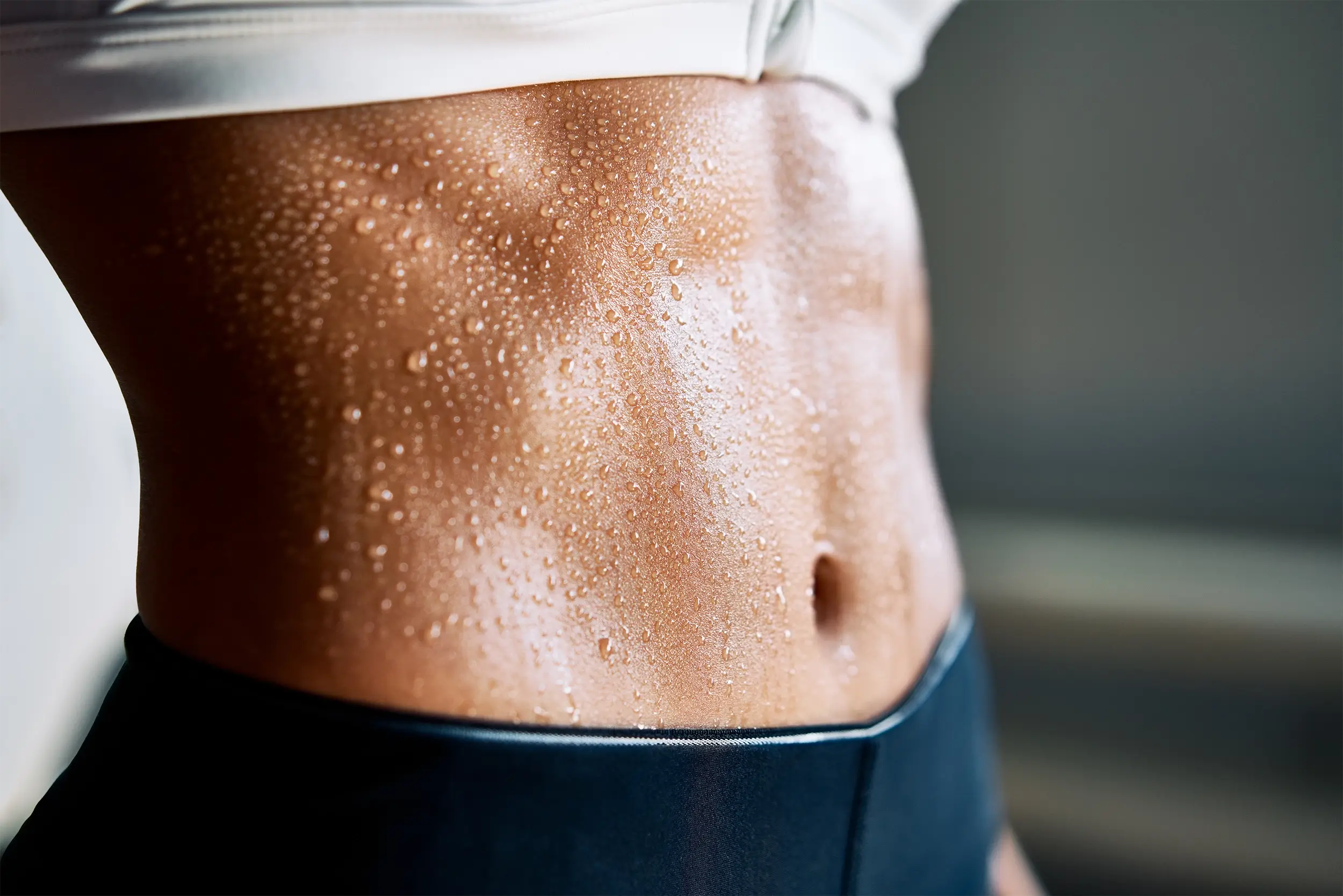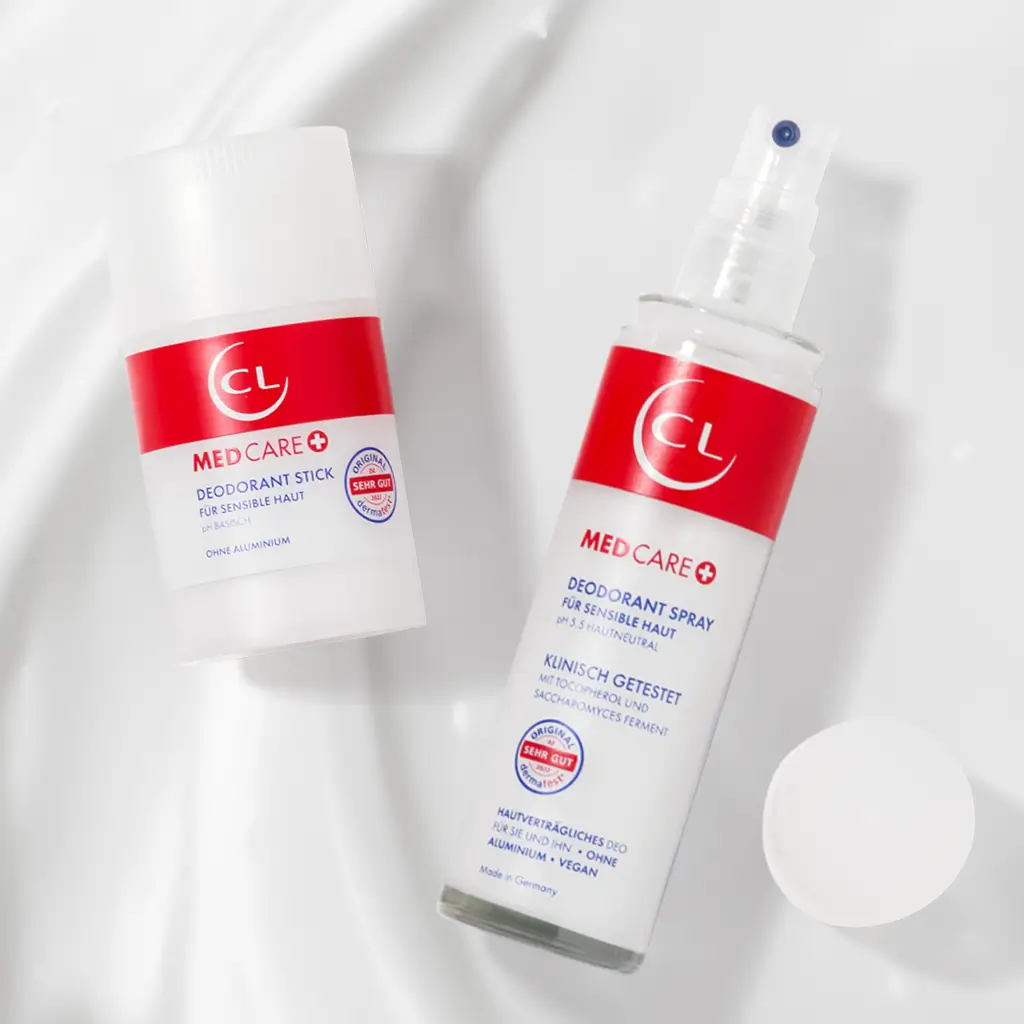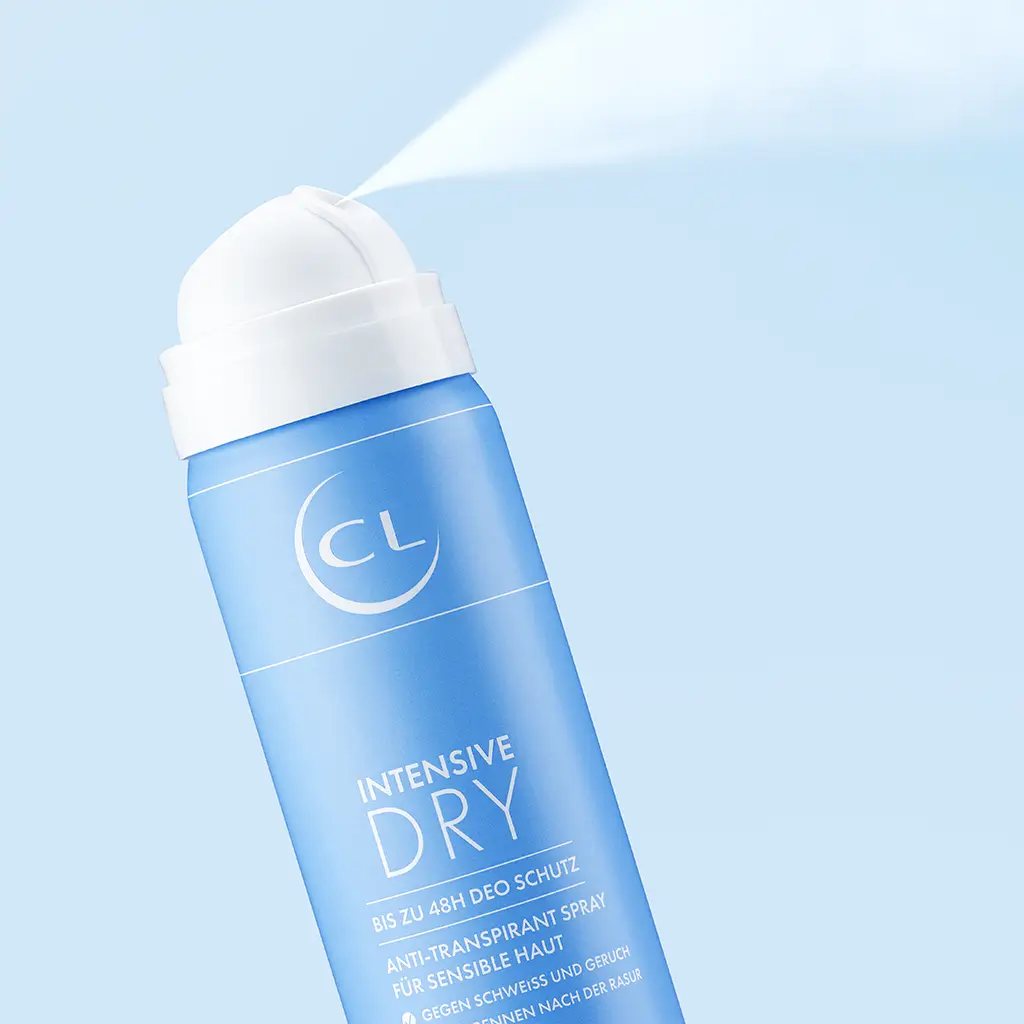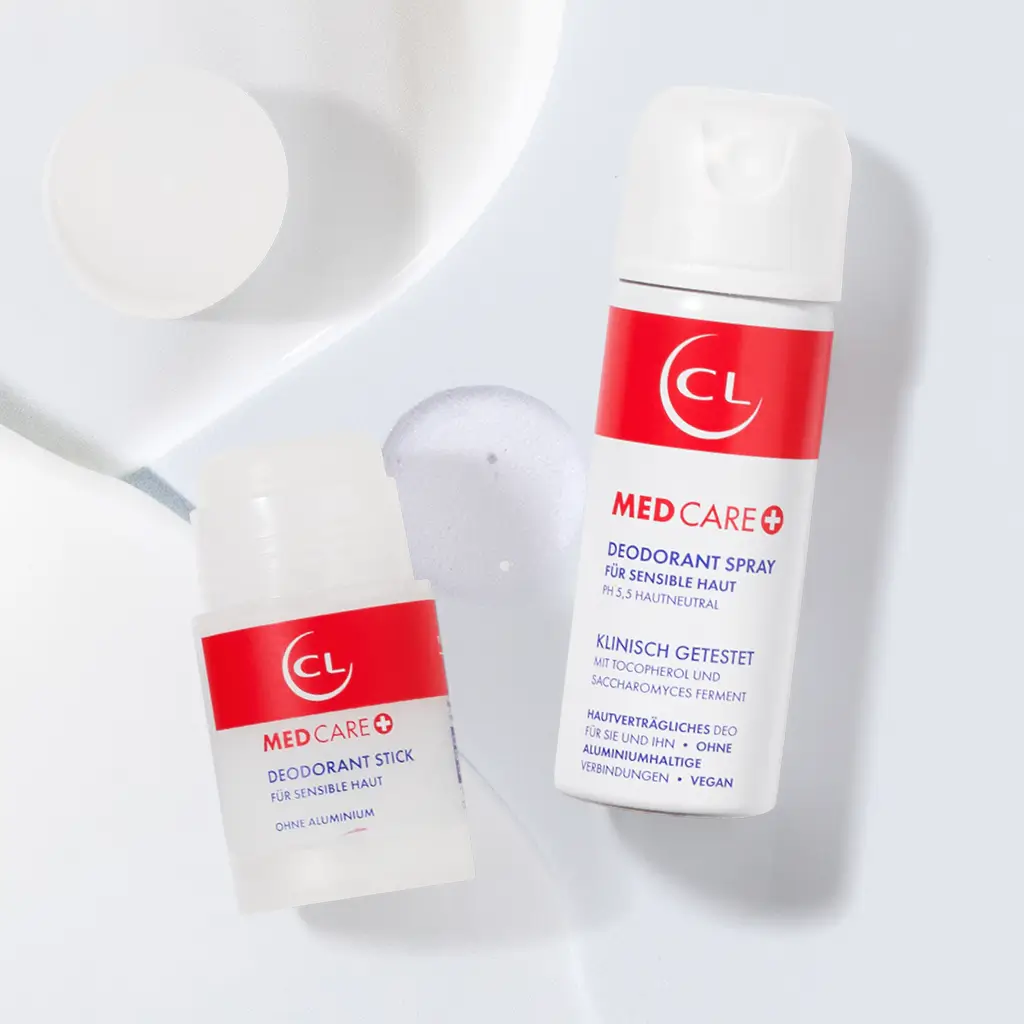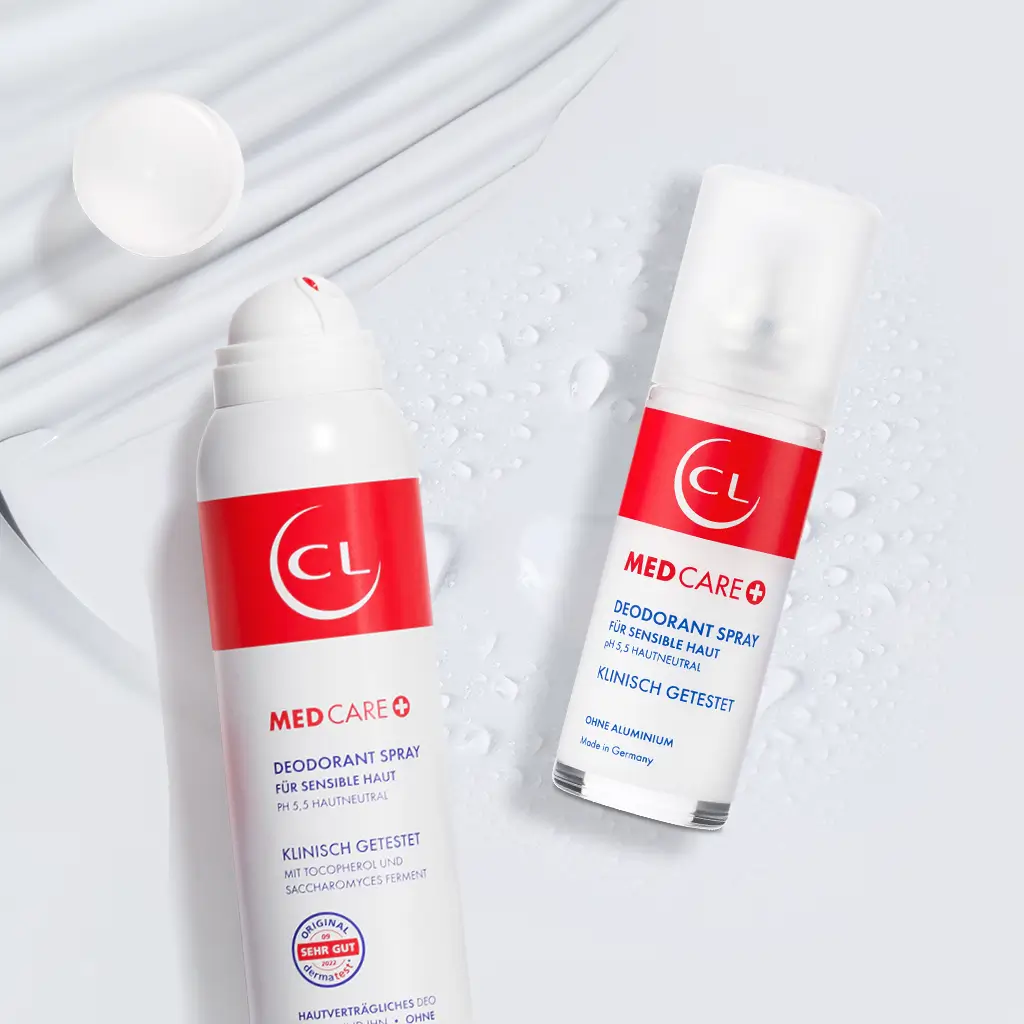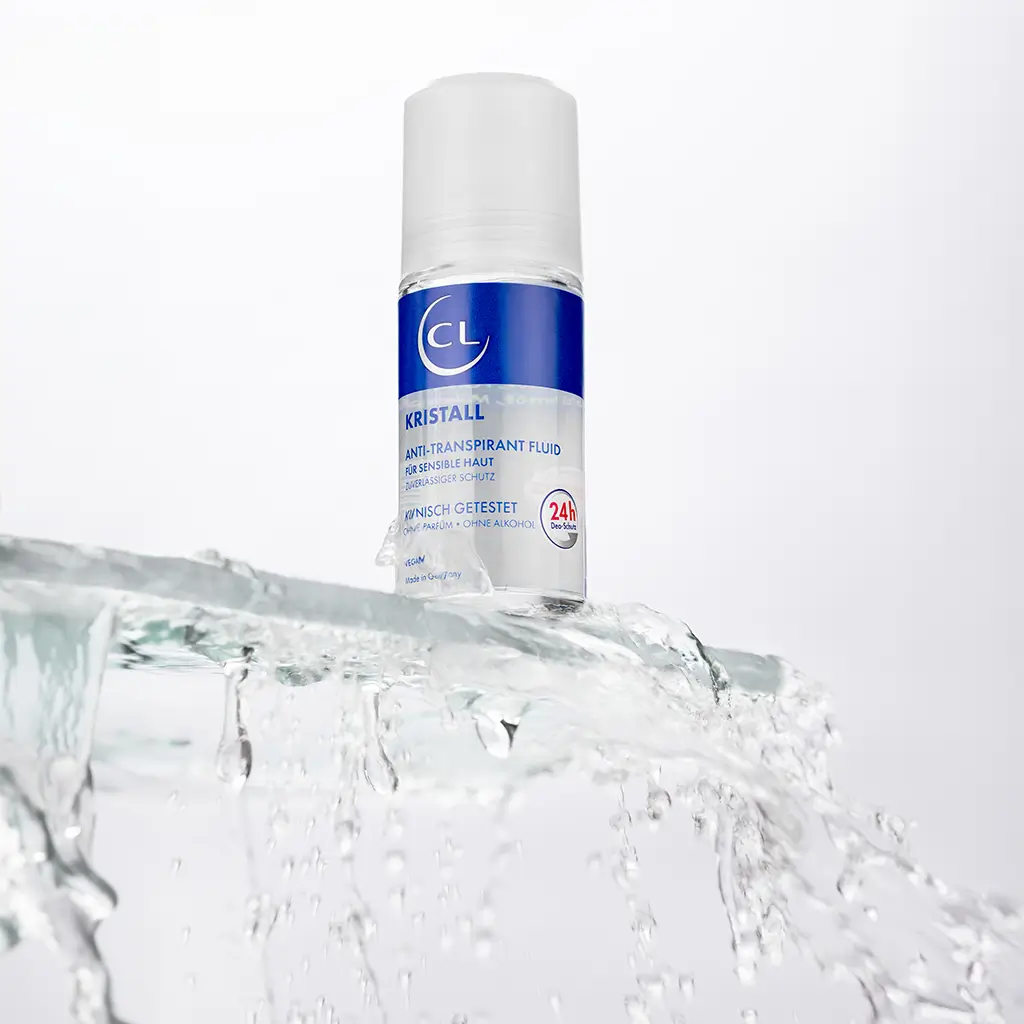Why do we sweat? The science behind sweating
Immerse yourself in the science of sweating and discover why our body performs this vital function.
Sweating is your body’s way of cooling down. When your body starts to overheat, you sweat to regulate your internal temperature. The reasons for sweating depend mainly on your activity level, your daily habits (such as diet and clothing choices) and your genetics.
Sweat is produced by glands in the outer layers of your skin. These sweat glands are found all over your body, but are more numerous in places like your forehead, armpits and palms. Sweat consists mainly of water, but also contains sodium, chloride, potassium, calcium and magnesium, as well as biological by-products such as lactic acid and urea. If sweat is causing you problems, you can manage it with antiperspirants and adjustments to your diet, activity level and clothing choices.
MAIN CAUSE OF SWEATING
OVERHEATING DUE TO HOT WEATHER OR TRAINING
Sweat is there to regulate your body temperature and cool you down. A common reason for sweating is physical activity. Interestingly, muscle mass generates more heat than fat. This means that if you are in shape or have more muscle, you may sweat more than less fit people.
IF YOU ARE ILL, FOR EXAMPLE WITH A COLD OR THE FLU, YOU MAY SWEAT MORE
A common symptom of colds and flu is excessive sweating. When you are sick, you may develop a fever as your body tries to fight the infection. Fevers increase your body temperature and can lead to sweating.
hormonal changes can influence sweat production
Certain hormonal fluctuations, such as during pregnancy or the menopause, can lead to an increase in internal temperature.
NERVOUS SWEATING DUE TO STRESS AND ANXIETY
Stress, anxiety and embarrassment happen to everyone! Stress sweat, also known as anxiety sweat, often leads to sweaty palms and feet.
WEARING TIGHT CLOTHING
Restrictive clothing, especially clothing that is tight under your arms, can lead to armpit stains. Instead, try to wear breathable and loose-fitting fabrics to keep your body cool and avoid excessive sweating.
SPICY FOOD CAN MAKE YOUR BODY FEEL WARMER
Did you know that diet can play an important role in how much you sweat and also how your sweat smells? For example, certain hot peppers contain a chemical called capsaicin. This chemical is the reason that hot peppers are hot. When you eat certain types of peppers, capsaicin triggers nerves that increase your body temperature. In response, your body may sweat to cool down.
COFFEE AND OTHER FORMS OF CAFFEINE
Caffeine activates your central nervous system (CNS), which is why it’s great at waking you up. But activating your CNS can also activate your sweat glands and cause you to sweat. If you find that you sweat after your morning cup of coffee or tea, you may want to reduce your caffeine intake to prevent sweat.
tips for avoiding sweat
USE OF ANTIPERSPIRANTS
Use antiperspirants to prevent perspiration and avoid sweat stains on your clothes. Antiperspirant prevents sweat before it starts! Apply antiperspirant to clean, dry underarms to control sweat and keep you dry.
SHAVE YOUR ARMPITS
Shave your underarms to reduce sweat and odor. Hair traps moisture and body odor, so your armpit hair could make you sweat. If you’re okay with shaving your armpit hair, this can help improve sweat and odor.
BREATHABLE CLOTHING
Wear breathable, comfortable clothing. Wearing thick, heavy clothing can cause your body to overheat and sweat excessively.
FREQUENTLY ASKED QUESTIONS ABOUT SWEATING
WHAT IS SWEATING AND WHY IS IT IMPORTANT FOR OUR BODY?
Sweating is the process by which the body excretes sweat through the skin to regulate body temperature and prevent overheating. This process is crucial for maintaining homeostasis, i.e. the balance of bodily functions. Sweat, which consists mainly of water and salts, evaporates on the skin and removes heat from the body, which leads to cooling. This natural cooling function is particularly important during physical exertion and in hot environments.
WHAT FACTORS INFLUENCE THE AMOUNT OF SWEATING?
The amount of sweating can be influenced by a variety of factors, including ambient temperature, humidity, physical activity, emotional states (such as stress or anxiety), genetic factors and general health. People who are regularly physically active may sweat more efficiently as their bodies are better trained to regulate temperature. Spices, medication and hormonal fluctuations can also increase sweat production.
are there different types of sweat glands?
Yes, there are two main types of sweat glands: eccrine and apocrine glands. Eccrine glands are distributed throughout the body and play a key role in thermoregulation by secreting a clear, water-like sweat. Apocrine glands are mainly located in areas with hair follicles, such as the armpits and groin, and produce a milky sweat that can lead to body odor when broken down by bacteria on the skin. These glands become active during puberty and their function is less associated with temperature regulation and more with emotional and sexual signals.
WHAT ARE THE HEALTH BENEFITS OF SITTING ON SHOES?
Sweating has several health benefits. Not only does it help with temperature regulation, but it also helps with detoxification by promoting the elimination of salts and other waste products. Studies have shown that sweating can contribute to the reduction of heavy metals in the body and thus plays a supportive role in cleansing. In addition, regular sweating, especially through sauna visits or intense physical activity, can boost the immune system and improve circulation, contributing to better overall health.

